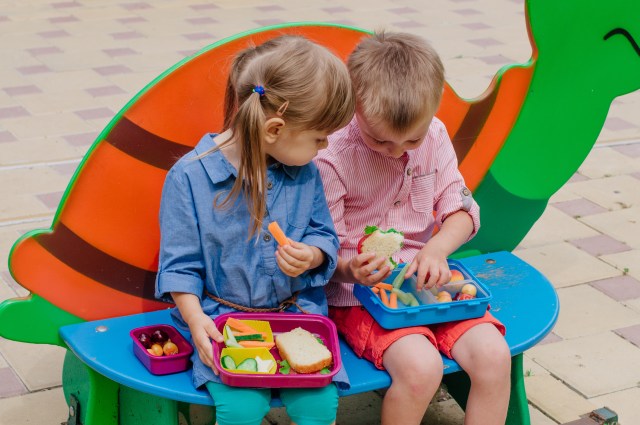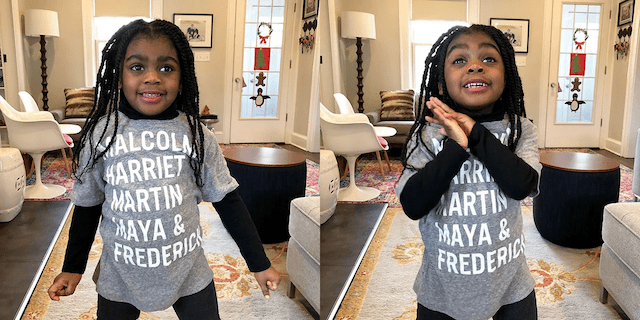Say it with us, “I’m going easy on myself today”
Parenting is no walk in the park, and sometimes it feels like the cards are stacked against us: work, dealing with tantrums (be it your toddler or tween), laundry, inflation on just about everything. That’s why it is more important than ever to offer some positive reinforcement… to yourself! We talked to the experts and came up with 15 positive affirmations to write down, display, or pull out on the days or in the moments when you need a lift.
Why positive affirmations can make you a better parent
We asked renowned parenting expert Reena B. Patel why positive affirmations matter. Patel, who is also a licensed educational psychologist, board-certified behavior analyst, and the author of Winnie & Her Worries, reminds us that positive affirmations are rooted in positive psychology. “Positive, simple statements help shift your focus away from perceived failures and direct your focus toward your strengths,” says Patel. “We believe and act upon what we think, thus leading to self-fulfilling prophecies if we focus only on what we are not good at. There is power in positive thinking. Positive emotions are linked with better health, longer life, and greater well-being.”
Patel also suggests that, whenever possible, parents try to state their affirmation while looking at themselves in the mirror, and by saying the statement multiple times a day (at least three is ideal). Use positive “I’ statements and place a visual of the words in an area that you can see daily as a reminder, she adds.
1. I am a good parent. It’s easy to criticize ourselves and focus on how we think we’re failing as a mom or dad. But parenting is tough, and we’re all doing the best we can. Acknowledge that fact, and tell yourself out loud, every day, that you’re a good parent.
2. Loving myself is the greatest gift I can give to my child. Kids are sponges and they learn from us. So if your kiddos know you appreciate yourself, they will learn to love themselves. That’s one of the greatest gifts we can give our kids.
3. I’m not perfect. We all know that nobody is perfect. But we place a big expectation on ourselves as parents to be pretty close to it. Repeating that mantra is a great reminder that it’s okay to be human, not to be perfect.
4. I can only control myself. It’s so hard, but one of the best ways to help kids grow emotionally is to exhibit mature behavior. Debbie Pincus, MS LMHC, says, “When we react emotionally to our kids and lose control, we’re allowing our kids to determine how we behave rather than the other way around.” Next time your kid throws a massive fit, try to stay calm and see what happens.
5. I am willing to learn and grow. Patel reminds us that it is critical to embrace change and growth, even when things seem tough. After all, it’s what we’d tell our kids, right?
6. Today is a new day. It’s easy to focus on how yesterday was a bad day. Sanah Rizvi, the founder of The Psych Way, suggests shifting the self-talk to focus on how every day is a chance to make progress toward what you want and the person you want to be.
7. I’m doing the best I can do. At the end of the day, that’s all we can do. Repeating that mantra every day will help you accept it as truth.
8. I make good decisions for my kids. This positive affirmation is a tough one to remember, especially when little ones are very vocal about making their displeasure with our decisions known. Parent Trust points out that moms and dads know they’re making the right choices for their kids. Embrace it and repeat the statement to yourself as a reminder.
9. I’m going easy on myself today. Permit yourself to take it easy. Say it out loud and grow comfortable with the idea.
10. It’s okay to ask for help, and what’s more, I deserve it. It’s time to take control of your needs and be OKAY with asking for help. You’ll be surprised to find out how many people are willing to step up if you just ask them.
11. Parenting is exhausting. Every parent knows this statement to be true. Writer Lauren Tamm suggests repeating this mantra as a reminder that taking care of kids is hard work. No wonder we’re so tired at the end of the day!
12. I am loved. Motherhood can be a thankless job, and little ones aren’t known for their compliments. Parent coach and family therapist Nicole Schwarz reminds moms that even though their kids may not say it, they really do feel that way. You just may need to put words to it.
13. I am what my kiddo needs. At the end of the day, there’s nothing else that’s as true as that statement.
14. It won’t always be like this. The one thing we know for sure is that hardships always pass. From colicky babies to navigating social media with tweens, one day, you’ll find yourself on the other side.
15. I do not need to compare. ” I know my kids the best, and comparisons do not serve me. If I notice myself comparing, I will quickly let it go,” Patel says. And that’s a lead worth following.
—with additional reporting by Leah Singer
































